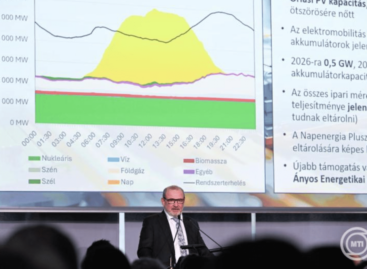A free trade agreement between the EU and New Zealand may be established, 48 Hungarian wines and foods will be protected
At the plenary session of the European Parliament in Strasbourg, the conclusion of the free trade agreement between the European Union and New Zealand was approved, which will eliminate 100 percent of New Zealand tariffs on EU exports when it enters into force, and 98.5 percent of EU tariffs on New Zealand trade after seven years. – informed the EU Parliament on Wednesday.

The agreement, approved with 524 votes, 85 against and 21 abstentions, provides protection for the names of 163 European food industry geographical indications, as well as nearly 2,000 EU wines and spirits with geographical indications, including 48 Hungarian wines and foods. The agreement also protects European producers of many agricultural products, such as beef and several dairy products, they wrote.
In a statement, the EU Parliament highlighted that the free trade agreement is the EU’s first free trade agreement that contains commitments that need to be implemented in terms of the 2015 Paris Climate Agreement and the basic standards of the International Labor Organization (ILO).
Related news
EU adopts rule to prevent destruction of unsold clothing
🎧 Hallgasd a cikket: Lejátszás Szünet Folytatás Leállítás Nyelv: Auto…
Read more >The EU’s 2050 carbon neutrality targets are unrealistic
🎧 Hallgasd a cikket: Lejátszás Szünet Folytatás Leállítás Nyelv: Auto…
Read more >Related news
Ham seasons: the bad, the better and the good (?)
🎧 Hallgasd a cikket: Lejátszás Szünet Folytatás Leállítás Nyelv: Auto…
Read more >PwC Global CEO Survey: CEO confidence at a five-year low
🎧 Hallgasd a cikket: Lejátszás Szünet Folytatás Leállítás Nyelv: Auto…
Read more >The Year of the Horse – Culinary trends in 2026
🎧 Hallgasd a cikket: Lejátszás Szünet Folytatás Leállítás Nyelv: Auto…
Read more >








